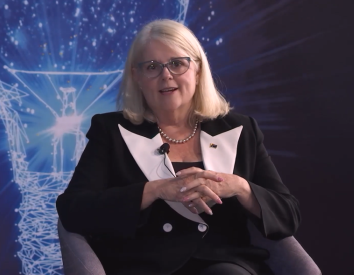Australian immigration laws are excessively harsh and our Immigration Minister has near-unchecked power in detaining migrants, writes Lina Li.
IN JULY 2017, my friend Jack was arrested by the police. He made bail a few hours later. His bail had strict conditions including surrendering his passport to the police and not going anywhere near an airport.
Immediately after that, immigration cancelled his visa on character grounds because of the charge. They assessed him as a risk to the community for merely being charged. Police charged him based on a complaint made against him by another person, without any evidence at the time. The judge who granted bail already assessed him not to be a risk. Migration laws override criminal laws when it comes to migrants. He was detained as he became an unlawful non-citizen without a visa.
Detention facilities are to be used only as a last resort to facilitate the deportation of non-citizens. Immigration was fully aware he could not be deported due to his pending trial and his passport was surrendered to police. His detention was strictly punitive for being a migrant.
We are all anxious about the lockdown rules, about the frustration that we cannot travel freely since COVID-19 broke out. But what about the detainees inside immigration detention facilities?
The U.S. authorities have to release some of the detainees to prevent the spread of COVID-19. The Australian authorities won’t do the same.
We have been only in lockdown for weeks and months in Melbourne and Sydney, yet thousands of people protested in the city centres from the beginning of the lockdown. Yet there are people who have been deprived of their liberty for years solely because they are migrants.
The Human Rights Commission published its report, ‘Immigration detention following visa refusal or cancellation under section 501 of the Migration Act 1958(Cth)’, in August 2021.
The former Commissioner Edward Santow made the following finding:
Arbitrary detention:
- The decision by the Department not to refer four complainants to the Minister to consider exercising his discretionary powers under s 195A and s 197AB of the Migration Act resulted in their detention being arbitrary contrary to article 9(1) of the ICCPR.
- The lack of assessment by the Department of whether the individual circumstances of four complainants indicated that they could be placed in less restrictive forms of detention was inconsistent with article 9(1) of the ICCPR.
- The decision of the Minister not to consider exercising his discretionary powers under s 195A and s 197AB of the Migration Act in relation to two complainants may have resulted in their detention being arbitrary contrary to article 9(1) of the ICCPR.
- The transfer and detention of one complainant to a state prison was arbitrary contrary to article 9(1) of the ICCPR.
In my friend’s case, he applied for bridging visas to be in the community while he was in Villawood Detention Centre. Immigration refused those visas. He appealed the refusals with the Administrative Appeal Tribunal (AAT) and he won. Former Immigration Minister Peter Dutton then threatened to personally refuse his visa, a decision that could not be appealed with the AAT. It could only be appealed in courts, but the process was lengthy and costly. He gave up and withdrew his application, spent one-and-a-half years in detention solely because immigration suspected he might be a risk to the community.
We live in a society that enforces two sets of rules:
- for Australians: if you are charged with a crime, you are innocent until proven guilty;
- for migrants: if you are charged with a crime, you are guilty until proven innocent;
- for Australians: if you are charged with a crime, you get bail and wait for your trial outside of a prison;
- for migrants: if you are charged with a crime, you get bail and wait inside an immigration prison that the Government calls a “detention centre” only to mislead the public;
- for Australians: if you are charged with a crime, you get a judicial system that includes legal professionals, expert witnesses and a jury of your peers to decide if you should be locked up; and
- for migrants: if you are charged with a crime, you get migration laws which include a few government employees with no legal expertise and one person (Immigration Minister) to decide if you should be locked up.
COVID-19 has made travel more difficult than before. There is no doubt it has made deportation of the detainees much harder. Legal and medical experts have urged the Government to release detainees since the beginning of the pandemic, yet to date, only a small number of vulnerable people have been released. The Asylum Seeker Resource Centre also called on the Government to act urgently to avoid a COVID-19 catastrophe in immigration centres.
Those who are detained inside immigration detention centres are not criminals, but migrants. They did not break criminal laws, or if they did, they have served their time in a prison already. They breached migration laws, they overstayed a visa, they worked more than the hours allowed. They do not belong to this country, but being a migrant should not be sufficient enough to warrant imprisonment. This is someone’s life, not some political campaign.
If there has to be something positive from these lockdown periods we have all endured, it should be that now we know what kind of mental and psychological damage being alone at home can do to people and we should take this opportunity to re-examine our policies on immigration detention facilities across the country.
Lina Li works as an immigration consultant in the immigration industry. She has extensive experience in the corporate migration sector and works closely with government agencies in making changes to the current migration program. You can follow Lina on Twitter @Lina52412342.
Disclaimer: Any views or opinions represented in this article belong solely to its author. They do not necessarily represent those of people or organisations that the author may be associated with.
Related Articles
- Canada’s aggressive plans for immigration post-COVID-19
- Manus Island and the horrors in Australia’s soul
 This work is licensed under a Creative Commons Attribution-NonCommercial-NoDerivs 3.0 Australia License
This work is licensed under a Creative Commons Attribution-NonCommercial-NoDerivs 3.0 Australia License
Support independent journalism Subscribe to IA.














